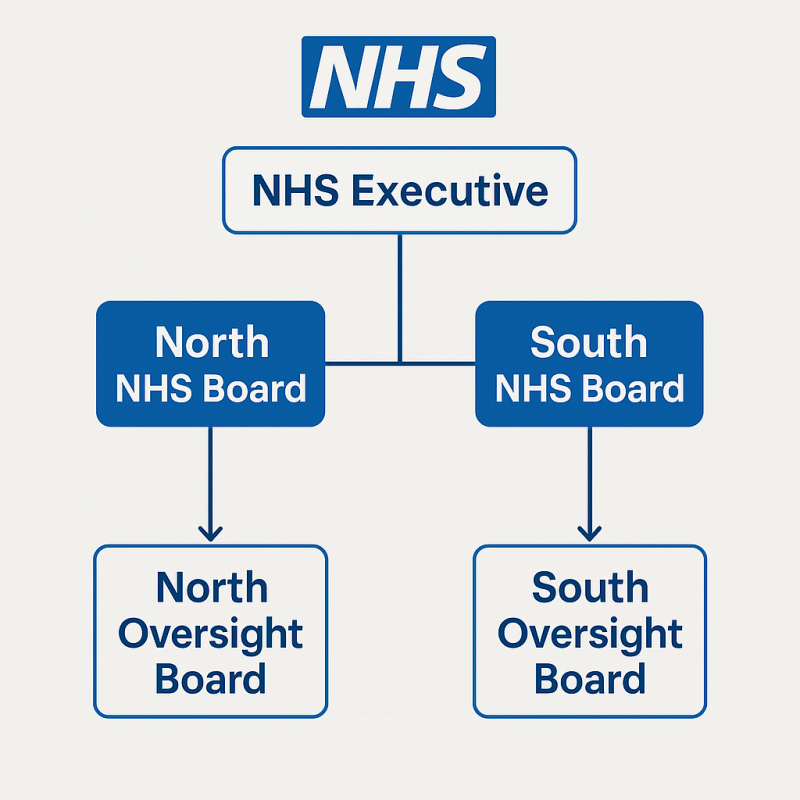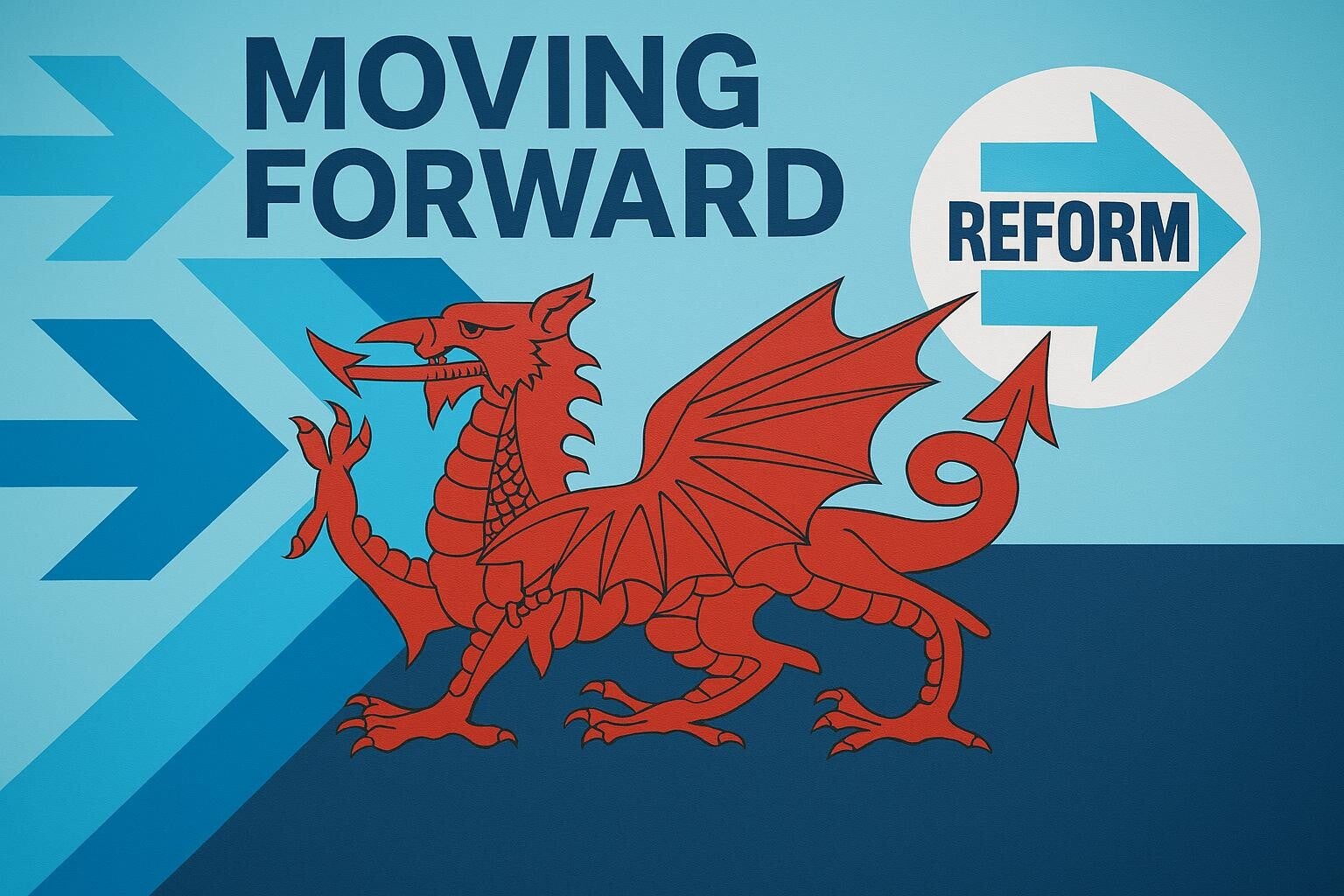NEWS FROM WALES
We aim to keep the people of Wales informed without fear or favour what is happening in our country.

THE SENEDD STILL HOLDS ON TO THE 'CLEAR RED WATER POLICY'.
The term Clear Red Water was coined in 2002 during Rhodri Morgan’s tenure as First Minister. It described Welsh Labour’s deliberate effort to diverge from Tony Blair’s centrist New Labour, embracing more progressive, distinctive Welsh policies.
The policy helped Wales diverge from Whitehall in sectors like rail and utilities—viewing devolution as a space for experimentation. This at a time when 'best practice' rather than Wales being used for hard left political dogma. Despite bold slogans, implementation has often been incremental and timid. The Institute of Welsh Affairs (2010) criticises this tendency: “long on rhetoric, but short on policies that would really make a big difference,” with reluctance among civil servants to deviate from UK models.
Significant challenges—social care and transport—are still unresolved or underpowered compared to best practices seen elsewhere: Social care financing remains unaddressed, with Wales even avoiding bold proposals from its own advisory group.
So much for the bold new future we were promised?

WALES IS BROKEN
The recent examples of mismanagement—such as the failed coordination between the Welsh European Funding Office and Visit Wales, the widely criticised “Cooking Bus” initiative, and the abandoned Circuit of Wales racetrack project—highlight systemic issues in oversight, risk management, and the allocation of public funds in Wales. These cases have not only resulted in significant financial losses but have also eroded public trust.
Reform could indeed help address these problems. Effective reform would likely need to focus on:
-
Strengthening oversight and accountability: Introducing stricter monitoring mechanisms and clearer lines of responsibility to ensure that projects are properly managed from inception to completion.
-
Enhancing transparency: Making decision-making processes more open and accessible to public scrutiny, which can help prevent frivolous or poorly planned spending.
-
Improving risk management: Implementing robust systems to identify and mitigate risks early in the project lifecycle, reducing the likelihood of costly failures.
-
Prioritising value for money: Ensuring that public investments deliver measurable benefits and long-term impact, rather than short-term or superficial outcomes.

2026 TIME FOR A RE_SET
A Political Shake-Up
Coalitions likely: Polling suggests no single party is expected to take a majority (49 seats), pointing toward coalition arrangements—most likely between Labour and Plaid Cymru. [weareeffective.co.uk], [en.wikipedia.org]
Emerging parties: Beyond the traditional Labour–Plaid axis, Reform UK is gaining prominence, polling strongly and potentially disrupting the two-party landscape. [weareeffective.co.uk],
Conservative decline: The Conservatives, under pressure from recent general election losses and internal divisions, now rank fourth in Wales at around 13% per polls.
A True Political “Reset”
The election of 7 May 2026 is not just another vote—it’s a foundational reshaping of Welsh democracy. With expanded representation, a shift to fully proportional voting, and an evolving political theatre (new parties, emerging coalitions), this election is widely anticipated to be "the most consequential Senedd contest since devolution began in 1999".
PRIORITIES FOR 2026 IN WALES

The Welsh NHS

Simplification of Governance
Currently, multiple boards create overlapping responsibilities, complex reporting lines, and inconsistent decision-making. Reducing to two boards streamlines governance, enabling clearer accountability and faster strategic decisions.
North: Rural, dispersed communities, unique challenges in access and transport. South: Urban, higher population density, greater demand for acute services. Two boards allow tailored strategies for these distinct needs while maintaining national standards.
Set up a strategic body devoid of politicians that would devise a re-setting of the Welsh NHS.

The Welsh Economy
OMG! where can I start?
Well, we can start by slaying that age old excuse of the loss of mining coal, it was a long time ago! The Welsh Assembly at that time started with a clean slate

Poor policies an decision making
The decision to destroy the Welsh economy was taken in a fit of pique by Rhodri Morgan! He dis-banded the Welsh Development Agency (WDA) who brought 23% of all inward investments into the UK to Wales.
They brought thousands of jobs - Aiwa (Electronics), Sony, Ford, Panasonic, Hoover, TRW, Toyota, British Airways, Anglesey Aluminum and General Electric


Welsh Education
The Welsh education system is in a state of freefall under Labour's leadership, with plummeting standards, falling literacy and numeracy rates, and a woke, ideologically driven curriculum. The Disturbing Roots of Labour’s Sex Education Agenda is a prime example of their mismanagement, promoting inappropriate material and sexualizing children under the guise of inclusivity. The Broader Failure of Welsh Education includes the new Curriculum for Wales, which has replaced academic rigor with woke indoctrination, leaving teachers overstretched and students underprepared.

Lynne Neagle (Education Minister) AKA I haven't got a clue!
Teachers in Wales have faced unprecedented challenges over the past year which the Welsh Government has failed to address adequately.
“The scale of the challenges affecting schools and colleges in Wales are such that a national recovery plan needs to be made a priority by the Welsh Government.
“Teachers tell us that to tackle the urgent issues facing the Welsh education system, we need more than just engagement from ministers – we need action that will make a difference and investment to match the scale of the challenges being faced by our members.”

The futures Turquoise

Why Wales Will Vote Reform
Given the widespread concerns about declining educational standards and the perception that Labour’s policies have failed to address core issues in Welsh schools, many voters in Wales are likely to seek an alternative that promises meaningful reform and a return to academic rigour. REFORM’s platform, which advocates for practical solutions, transparency, and the prioritisation of traditional educational values, appeals to those disillusioned by Labour’s approach and looking for genuine change.
This growing sentiment reflects a broader desire among the Welsh electorate to move away from ideologically driven agendas and towards policies that better serve teachers, pupils, and parents. As a result, REFORM is positioned as a credible choice for those who believe a fresh start is needed to restore confidence in Welsh education and public life.
